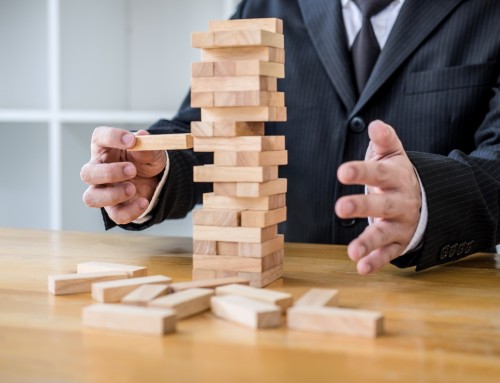Intuition is an interesting concept. It’s something nearly all of us acknowledge the existence of. If you’re a spiritual person you might call it psychic, or a word from God, energy of the universe, etcetera. If you’re more of a scientifically minded sceptic, you might explain it through the lens of the reticular activating system or subliminal information gathering.
Whatever you want to call it, we all experience it the same way. A gut feeling. A pull. A “knowing” without knowing why. It’s like having the answer to a math problem without being able to show your working. It feels good, but also disconcerting. Like being right isn’t as valid if you don’t know why you were right.
In my professional area of personal safety and violence prevention, intuition plays a crucial role in ensuring safety and avoiding dangerous situations. However, a finely-honed intuition can also help you make better decisions in relationships, in your finances, at work, or in corporate life.
In fact, in any area where you need to make choices, your intuition plays a role whether you acknowledge it or not. One of my favourite quotes is from Robert A. Heinlein. The famous author wrote “Man is not a rational animal. He is a rationalising animal.” What that means is that even decisions you think you’ve made based upon data, are usually at least partially influenced by your intuition and then justified through selective application of data.
So, if intuition is so important, how do we harness it? Isn’t it something we’re just born with? Is your intuition like your height or shoe size? You’re either intuitive or you’re not? The answer to these questions is NO!
Intuition can be coached. It can be trained. More or less.
More or less?
Our conventional approach to acquiring skill is to do more. More study. More reading. More training. That can play a part in educating your intuition, but it’s not the whole story.
Your intuition is, after all, an emotional reaction to stimulus that you haven’t consciously processed – something you haven’t thought about in your rational mind, but that some part of your brain has noticed. The more practised you are at recognising patterns in your field, the more readily your intuition will flag them for you.
If you know patterns of criminal behaviour at a molecular level, you’ll recognise the shifty movements of the stranger at the end of the parking lot as you go to buy your $2 latte at 7-11. The same could be said for knowledge of the stock market, or emotional intelligence, or even just how to anticipate what mood your spouse is in based upon the way they take off their shoes. If you miss it consciously, your intuition may pick up the slack for you. That’s where more study can be useful.
However, the true gains to be had in maximising your intuition actually come from doing less. Less thinking. Less panicking. Less analysing. Less hurrying.
I recently had the pleasure of interviewing world renowned self-defence expert and author, Rory Miller, on my Managing Violence Podcast. We were discussing his most recently published book, Living in the Deep Brain: Connecting with your Intuition. In this work, Miller argues that the most important aspect of utilising intuitive powers is not in addition, but in pruning the non-essential. Much like a beautiful sculpture is often finished not by adding more clay, but by carving away the excess that is not contributing to the desired aesthetic.
This might sound very Zen, like the musings of a 100-year-old monk in a low-budget Hong Kong action flick, but let’s see what that might mean in our day to day life.
When do you think you’ll notice your colleague’s emotional state best; when you’re stressed about your own life and your own job security, or when you’re comfortable and relaxed? When will you notice an interesting stock fluctuation; when you’re running from meeting to meeting and answering phone calls while simultaneously flicking through your stock app? Or when you can calmly take your time and digest what you’re looking at?
Let’s say you’re negotiating a deal with significant financial ramifications. If you can approach that meeting with a clear mind having shut out any other thoughts, your intuition will be able to focus intently. It will pick up on the subtle nuances of the conversation; facial expressions, pauses or body language tells that might give you a hunch that leads to a better outcome.
So how do we clear our mind? Practise.
Five Things

Miller suggests an exercise he first came across in psychological first aid training. It is typically used to bring someone back to the present moment after a trauma.
Here’s how you do it:
Stop what you are doing. Close your eyes. Mentally label five things you can hear and five things you can feel touching your skin. If you want to really test yourself, find five scents you can smell. You cannot do this without being truly present in the moment. Do this regularly and you will train your subconscious to high level of base situational awareness.
Unplug

Another exercise is to regularly unplug from all distraction. Go somewhere on your own where there are no people, no vehicles, no electronic devices, and (if you want to be a little crazy about it) no reading material. Just be. Listen. Smell. Feel. Train your senses to notice things without the constant overwhelm of our big-city environments. You don’t have to live like this all the time (as tempting as it is) but regularly detoxing from the ‘noise’ of civilisation can really help you clear the mental clutter.
Breathe

Lastly, one I suggest to nearly everyone that I teach, is to simply breathe. If you have 20 seconds, you can get in a round of controlled breathing. If you have two minutes, you can completely change your physiological state.
Breathe in for the count of four, hold full for the count of four, breathe out for the count of four, hold empty for a count of four, and repeat.
Be present in the breath. Feel the sensation of your belly expanding, of full lungs, of the air rushing out of you, and of your brain searching for more oxygen before you take your next breath. Bask in each moment and truly experience it. Don’t hurry.
Breathing is a powerful tool, because when you can’t breathe, nothing else matters. No one ever thinks about their taxes when they’re drowning. Control your breath and you control your emotion. The ability to stop what you’re doing and spend two minutes just breathing reassures your physiology that you are not under threat. It will lower your stress levels immediately and clear your mind.
I suggest doing this breathing exercise, followed by the “Five things” exercise immediately before any situation where you need to be 100% present and fully access your intuitive super powers.
You get it, right?
What I’m saying probably makes sense to you at a gut level. After all, intuitively, it sounds right, doesn’t it?
But let’s summarise:
- Intuition is a thing.
- Having a finely tuned intuition can be a decision-making super power.
- Being able to listen to your intuition is essential to using the super power.
- You can train it, but the best way to access it is to clear your mind of the non-essential.
- Be present, be aware, and breathe.
Whether we think we’re a rational person or not, the truth is you make decisions based upon emotion and intuition every single day. Doesn’t it make sense to refine those decisions and capitalise on the brutal efficiency that intuitive action brings.



